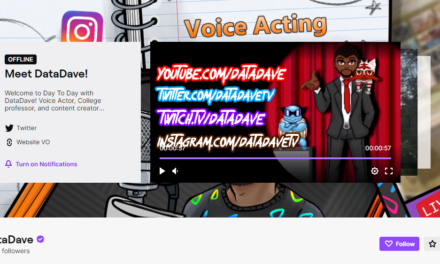Writing great content for your website is easier when you’ve got an in-depth understanding of your subject. It’s even better when your understanding is derived from personal experience because that builds rapport with your readers. However, even when your readers consider you a credible expert, there’s room to go even deeper.
Most content written for the web only scratches the surface of a given subject. Even experts – people who should have a wealth of knowledge – end up scratching the surface because they write from a limited viewpoint.
If you want to gain a deeper understanding of your subject, you have to understand it from all angles, including the angles you don’t agree with.
Exploring a Subject You Know Everything About
When you know everything about your subject, it’s important to recognize that you probably don’t. That sounds harsh, but it’s a gift, and here’s why.
When you think you know everything, you’ll miss opportunities to learn more. You just won’t see them. You’ll filter every bit of incoming information looking for ways it matches with what you already know. If it doesn’t match what you know to be true, you’ll discount it.
The truth is, there are other experts in your field who hold completely different views on the same subject. What makes an expert isn’t their particular viewpoint, but their depth of knowledge. If you really want to be the ultimate expert, you should aim for understanding the views of other experts. Especially the ones you don’t agree with.
When you think you know everything, you run the risk of getting stuck in a cycle where you only have two responses to someone else’s input: “I already know that” or, “that doesn’t apply to me.” This doesn’t help you understand the information you’re being given.
It helps to think of other people’s viewpoints as experiences you haven’t had, rather than ideas you disagree with. This makes it easier to explore without too much judgment. You can’t understand something when you’re making it wrong.
You Need Quiet Space to Sit With Your Ideas and Go Deep
If you’re like most content writers, you’ve probably been to a writer’s workshop or two with the intention of getting some work done. However, it doesn’t always work out well. The structure of critique-on-the-spot can be damaging for many writers, and the pressure to share unpolished ideas can cause anxiety.
Writer Eric Maisel has been working with writers for 30 years, and understands the need to prioritize and develop a writer’s creativity in a supportive, quiet space. Maisel runs a Deep Writing Retreat at the Art of Living Retreat Center where writers don’t share or critique anyone’s work. The purpose of his writing workshop isn’t to create perfection, but to go deep.
“If we get quiet enough, we go deep from a physiological standpoint, and we get our whole brain back,” Maisel says. “When you get quiet, you have that experience of silence in which ideas are born, and that’s the depth of the workshop.”
Going into a deep, quiet space with your subject supports you in understanding its complexities and layers.
Stay in the State of Curiosity as Long as Possible
It takes effort to remain in a state of curiosity when you’re exploring an idea you don’t completely agree with. Staying curious is essential if your goal is to understand. This requires authentic listening and asking questions.
According to Fast Company, questions without authentic listening are thinly veiled challenges, judgments, and assertions; challenging questions with authentic listening activates latent power, potential, and collaboration.
Spend time browsing the social media accounts and blogs of people who write about your subject from other points of view. When you read something you don’t agree with, turn your disagreement into a question. Ask them for clarification. Ask how they view the opposite idea. Ask authentically, and they’ll be more likely to engage in open dialogue with you. Approach the conversation with curiosity and you’ll be surprised at what you can learn.
Avoid the Trap of Agreement and Disagreement
Have you ever noticed anyone asking questions on social media? It’s rare, and that’s because most people are constantly battling the impulse to agree or disagree. Our society doesn’t train people to be curious about other people’s experiences and viewpoints.
There’s nothing wrong with agreeing or disagreeing when engaging in discussion, however, when your goal is to understand other people’s point of view, it just doesn’t work.
When you do engage in conversation with others who have different views, don’t allow yourself to be swayed by the impulse to agree or disagree. Be aware of this impulse when it arises and let it go. Stay focused on the other person and be committed to getting their communication, no matter how many questions you need to ask.






